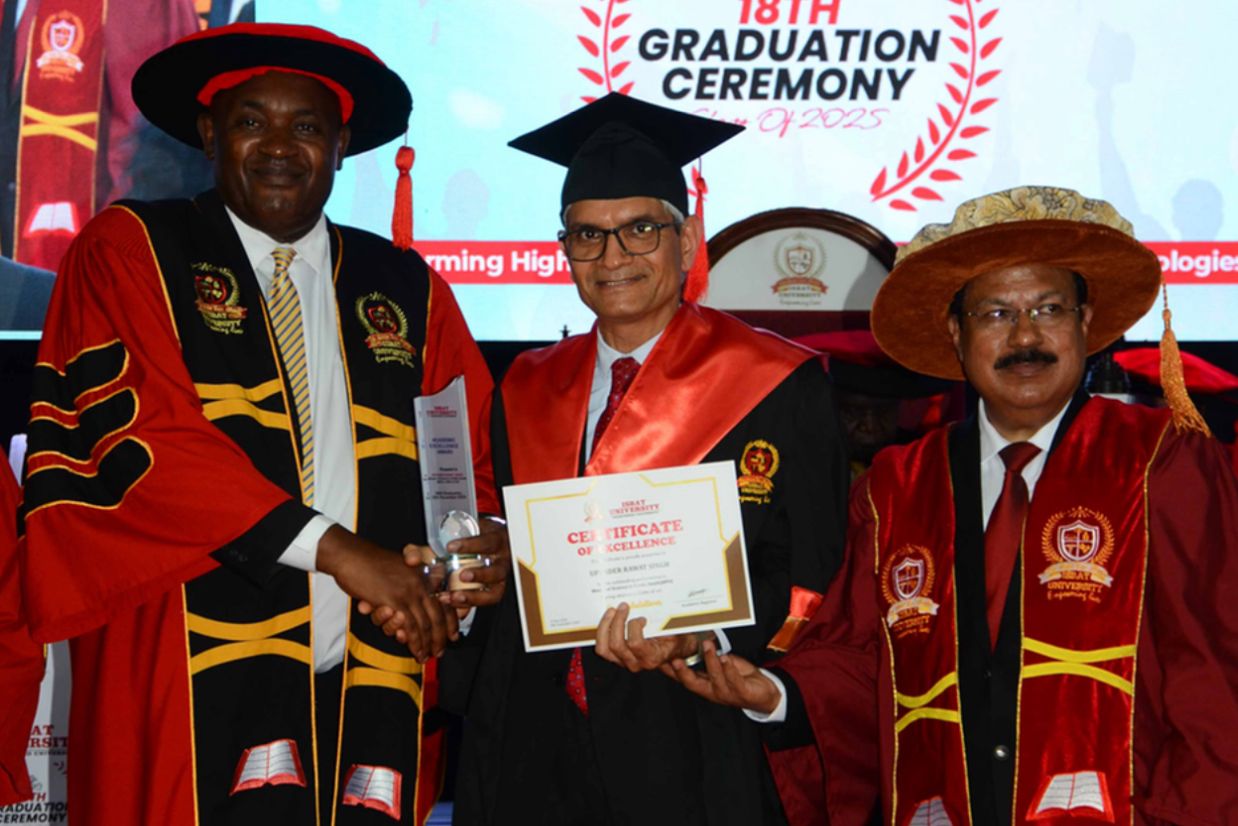The Minister for Information and Communications Technology (ICT) and National Guidance, Dr. Chris Baryomunsi, has called on public and private universities in Uganda to actively contribute to improving government service delivery through innovation and technology.
Speaking at the 18th graduation ceremony of ISBAT University at Hotel Africana Baryomunsi emphasized that while Uganda’s 68 universities are teaching computer science and installing computers in libraries, their research and innovations must influence public policy and translate into practical solutions that enhance societal well-being.
“You cannot say technology is for the Western world. It will find you where you are even if you hide your head in the sand. I have been to countries like South Korea where doctors use artificial intelligence to make quick, accurate, and better diagnoses of ailments like cancer. How do we bring these technologies into the health sector in Uganda for our health workers to perform better?” Baryomunsi said.
The graduation, celebrated under the theme “Transforming Higher Education by Integrating Emerging Technologies,” saw 962 graduands awarded various academic qualifications. Among them was the Indian High Commissioner to Uganda, Shri Upender Singh Rawat, who earned a Master’s degree in Public Health. Ambassador Rawat said he intends to leverage his knowledge to strengthen Uganda–India collaboration in healthcare.
In his keynote address, George William Nyombi Thembo, Executive Director of the Uganda Communications Commission (UCC), stressed that emerging technologies—such as artificial intelligence, data analytics, and virtual reality—are reshaping industries from healthcare to finance, manufacturing, and the creative arts. He urged universities to actively participate in this transformation.
“Traditional lectures, fixed curricula, and standardized assessments no longer align with the dynamic, personalized, and digital world students inhabit. Education must evolve from simple knowledge transmission to knowledge creation and application. Emerging technologies are catalysts for this revolution,” Nyombi said.
The Chairman of ISBAT University’s Board of Directors, Varghese Mundamattam, highlighted the importance of multi-sectoral partnerships. “Strong collaborations with industry, government, and civil society give students real problems to solve, internships to gain practical skills, and pathways to research that translate into public benefit,” he said.
Baryomunsi’s call for innovation comes at a crucial time for Uganda’s ICT sector, which contributes approximately 9 percent of GDP, employs 1.3 million people, and grows at around 15 percent annually. However, significant gaps remain between skills produced by traditional education systems and the needs of the modern workforce.
According to the Uganda Bureau of Statistics, over 700,000 graduates enter the job market annually, yet unemployment stands at 12.3 percent, with 42.6 percent of youth aged 15–24 unemployed or not in education or training.
Baryomunsi urged universities to leverage emerging technologies to enhance government service delivery, promote digital literacy, and foster innovation, entrepreneurship, and cybersecurity skills—ensuring Uganda fully participates in the digital economy.


